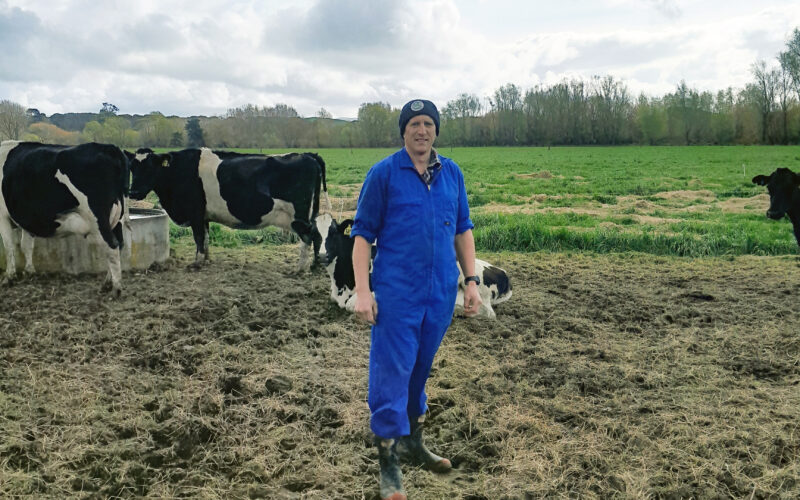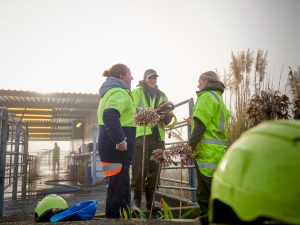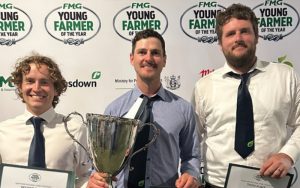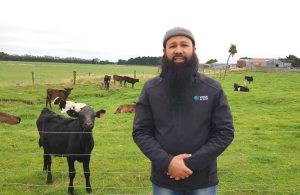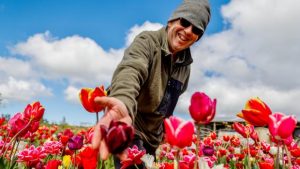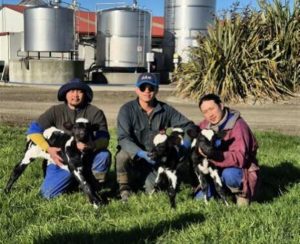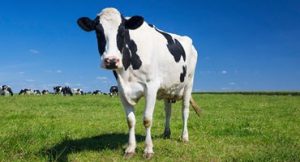
Mike Burmeister took himself right to the edge before he found a better way to live and work.
Farmstrong caught up with Tararua dairy farmer Mike Burmeister and asked him to share his tips for keeping well on farm.
Mike and his wife Heather farm 710 hectares just north of Pahiatua and milk 980 cows on 324ha with a team of seven, many of whom have worked with them for years.
After decades in the industry, he’s clear on his priorities.
“My first priority is my family’s wellbeing, my second is my staff’s wellbeing and my third is my stock’s wellbeing.”
He said an episode of burnout early in his career helped shape his thinking.
“I was in my early 20s, milking about 260 cows and working day in, day out, all hours of the day and half the night, and it reached the stage where I turned up for milking one morning feeling so exhausted that I told the guy working for me ‘I’m going back to bed for a couple of hours’. I didn’t wake up until the next day! I was just doing way too many hours. When you’re that tired, you’re running round in circles achieving nothing. That was my first real wake-up call.”
Smarter hours
Thirty years on, it’s no surprise that working smarter hours rather than longer hours is a hallmark of his operation. They milk three times in two days (3 in 2). The milking roster has not only proved kinder on staff (every second day’s a 7.30 start), it’s brought a host of other benefits too. His cows are collectively walking 420,000 fewer kilometers a year, improving their welfare: 10 million fewer litres of water are being pumped through the cowshed per annum in a catchment where water use is at a premium; and the roster has freed up over 1000 hours of labour that can be applied to other tasks, all while maintaining milk production and increasing profitability.
Workload during busy times like calving is also carefully managed (a six-on and two-off roster) – another legacy of Mike’s early days in the industry.
“I used to work long hours during calving like everyone does, come home late and then head out again at nights to check on the calvers. Mentally and physically that was really tough. You wouldn’t get home again until about 9pm. It was exhausting.”
After building a new milking shed over the winter of 2004 Mike was exhausted and something had to give, so he decided not to do the night check on the calvers. The result was a game changer.
“I realised as long as they were well fed by 5pm, they’d be fine. And I was right. I didn’t lose a cow that spring. That was 20 years ago and I’ve never been out at night again since. It means I can get eight hours sleep, even during calving, which makes a huge difference.”
Building a Farmstrong team
He’s put similar thought into creating a workplace culture where people feel valued and want to stay.
“It didn’t happen overnight. In the early ’90s, I was so young and inexperienced, I had high staff turnover. I wouldn’t have worked for me!” he laughs. “There’s always going to be guys leave to extend their career, but in general, they stay with us for a long period these days, with two guys having reached their 10-year service bonus.”
There were a couple of significant turning points for him in the early 2000s. The first was getting pneumonia for the second time and his doctor telling him to change his lifestyle and reduce his stress or it would kill him. The second turning point came around the same time when he employed someone from a corporate background who was keen to get into dairying.
“I learnt so much off him. We started having staff meetings, where everyone could sit down and have their say. Over time we formalised it, added a health and safety component, and started keeping minutes. It’s only for half an hour once a week, but it’s made a huge difference.”
Stuff-up of the week
Nowadays Mike and the team celebrate key points of the season with team dinners and family gatherings and add a little fun to each week with a “stuff-up of the week” morning tea to make light of the inevitable “cock-ups” that go with any job.
Mike reckons coaching schoolboy rugby taught him a lot about people management.
“I learnt that you can still get results by having fun and brought that back into the business. It also taught me the value of taking the time to find out what makes people tick. You can’t play a game of rugby with a team of half backs Everyone has different skill sets. If you cut people some slack and accept getting 90% of what you’re after out of them you’ll have a happy team.”
Grabbing some time out
That’s great for the team, but who looks after the coach? Mike rang the changes here too. “When the kids were young, we bought a caravan at the beach and committed to spending one weekend a month and one week every school holiday down there, we’d make the effort to get there no matter how busy things were.
It was something his wife Heather insisted on.
“She’d be all packed up with the kids ready to go at 10 past three on the Friday. I was never ready, but I still got in the car. And as soon as I did that, I’d switched off from the farm and enjoy the rest of the weekend. I’d come back mentally refreshed.”
These days the bolthole is a beach house but Mike’s approach to work-life balance remains the same. His go-to during the week is a quick game of social squash.
“I’m not that good but it’s great to go and do something physical like that. Some days when I’m heading there, I think ‘Why am I doing this?’ But then when I’m driving home, I’m thinking ‘Shit, that was a great idea.’ The beauty is I can leave here, play a game and then be back an hour later, feeling great.”
Decision day
Although his farm is prone to flooding, it was a drought that gave Mike the greatest insight into how best to manage worry and uncertainty.
“A farm consultant gave me a wonderful piece of advice: he suggestion that allocating one day a week as decision day could really reduce the endless pressure that a drought can load on you. That particular year, Monday was our decision day, our strategy was to dry off 50 cows every week until we got rain. So we made all our decisions on a Monday and then stuck with them, regardless of whether it was right or wrong. It really took the pressure off.
“During the first covid lockdown we had a big drought. Because our discussion group couldn’t meet in person we switched to Zoom, which was completely foreign to most of us. Some of the guys were really struggling with the on-farm conditions, combined with the isolation that covid bought, so it was a great way to support each other from a distance with ideas and management strategies.”
Staying Farmstrong
Reflecting on how farming has changed over his life, Mike concludes, “Farming was very physically demanding for our forefathers. These days I think it’s mentally harder. There’s more of everything, and people are time poor. We have larger farms, larger herds, bigger teams of people to manage, and there’s more compliance and regulation. You never get to switch off and you’re always looking over your shoulder.
“Farming’s my passion. It’s all I ever wanted to do. So I’m very lucky that I’m actually doing something I love. But there’s no doubt that the steps I’ve taken to look after myself have made a massive difference to my longevity.”
Farmstrong is a nationwide, rural wellbeing programme that helps farmers and growers manage the challenges of farming. Last year, 14,000 farmers attributed an increase in their wellbeing to the programme. For free tools and resources visit www.farmstrong.co.nz
You can now read the most important #news on #eDairyNews #Whatsapp channels!!!
🇺🇸 eDairy News INGLÊS: https://whatsapp.com/channel/0029VaKsjzGDTkJyIN6hcP1K
